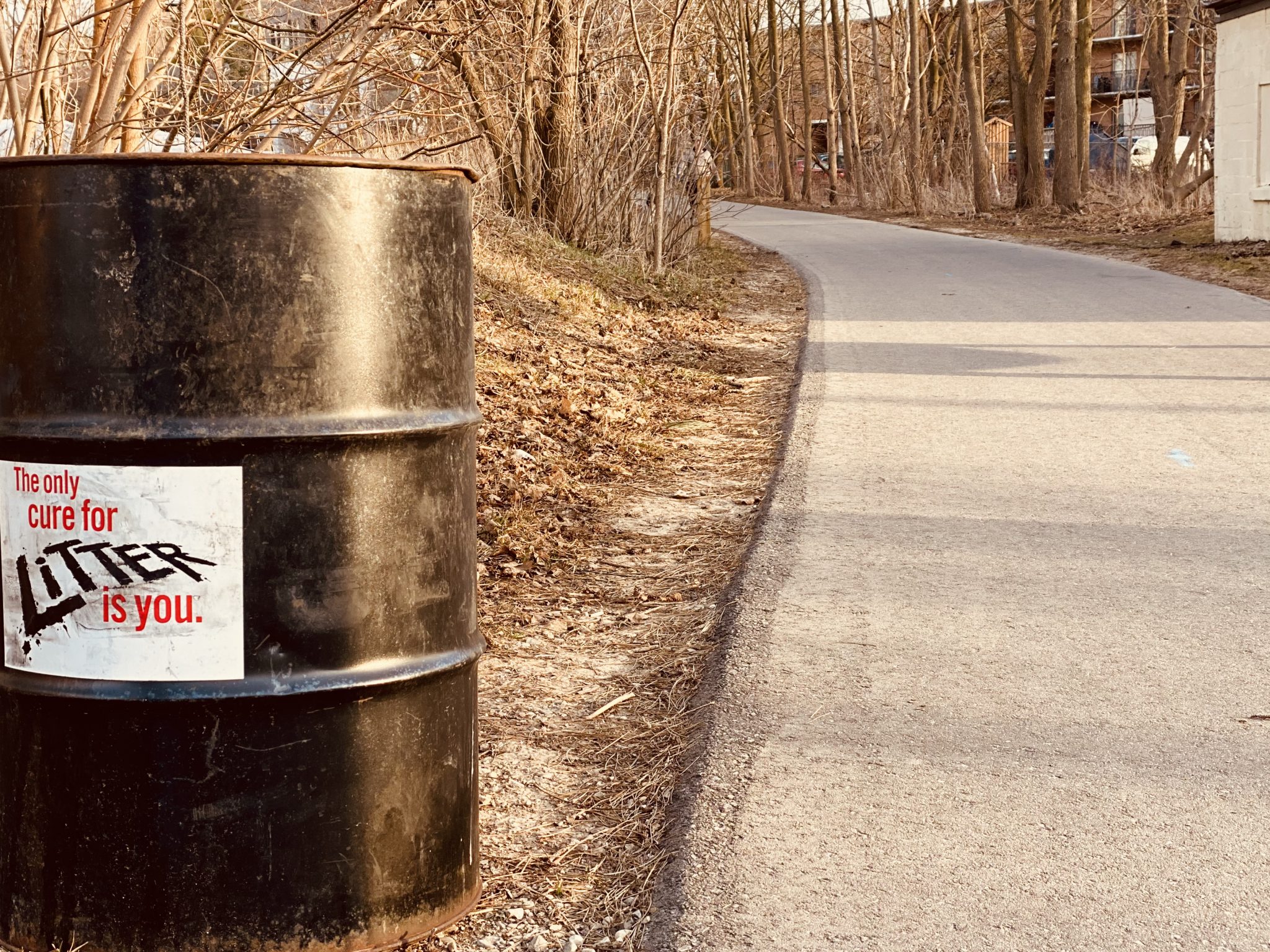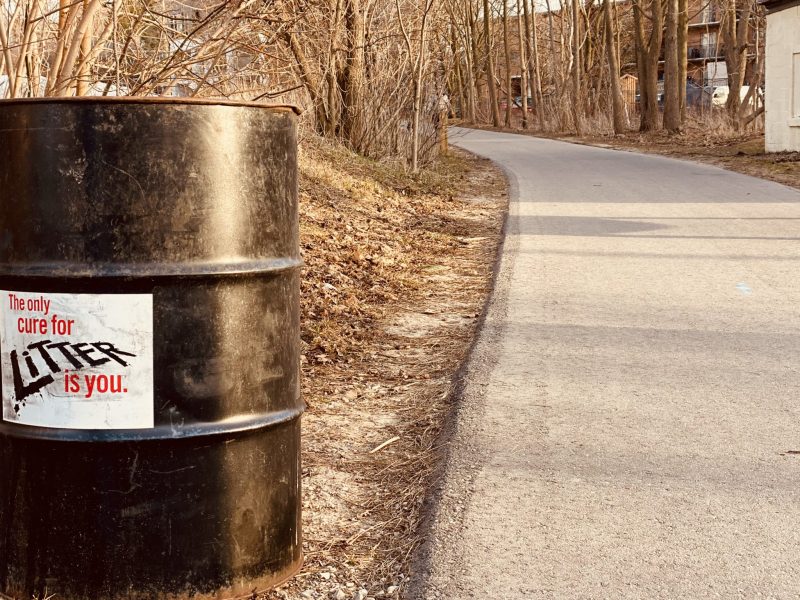Waterloo region offers potential solution for dog waste


You have probably seen the many different iterations of the same signs to get you to pick up your dog’s poop. No matter what your reaction is to these signs, the message is clear —be responsible and scoop the poop.
On average, a dog excretes between 0.5 and 0.75 pounds of waste per day. All that poop is polluting water sources, both in urban areas and the backcountry, largely because dog owners aren’t doing a good enough job of picking it up.
Steven Cseresnyesi, vice president of Sutera In-Ground, has been with the company for over four years. Sutera produces pet waste containers that have a concrete well in order to prevent contamination. The poop is then collected and brought to a local power plant where it’s turned into energy.
In 2016, Sutera had a meeting with the city of Mississauga.
“We were talking to the city about their waste and recycling problems within their parks,” Cseresnyesi said.
The city of Mississauga said their biggest problem in parks was dog waste.
“That was the first time we were ever introduced to the problem of [dog] waste as a relation to waste management,” Cseresnyesi said.
The company was asked to develop a containerized system that will be able to segregate the main contaminant: dog waste.
“We went back to the drawing board and figured out what doesn’t work. We wanted to try to encourage and increase pick-up behaviours within dog walkers,” Cseresnyesi said.
“We found out there was only a 60 per cent pick-up rate. It all related back to the ‘gross factor.’ This is an inverse relationship between three variables which are: odour, visual distraction and user touchpoint.”
“If we’re able to engineer those three factors out of the design, then people would be more opted to use the bins,” Cseresnyesi said.
The dog waste receptacles benefit the region immensely. The direct impact is the environmental impact — for example, the cleanliness of parks.
We want to try to change behaviours. I am hoping that Canada can step up and support this homegrown innovation.
Steve Cseresnyesi, vice-president of Sutera In-Ground
“The city parks official within Waterloo has stated that even parks with our units in it, they are much cleaner,” Cseresnyesi said.
“The other thing is, they should go into more than just parks. Our studies have shown that people normally walk their dog around their neighbourhood. Whenever there’s a fire hydrant, there should be a Sutera unit close by.”
“Waterloo is realizing that they have the opportunity to implement something on a wide scale. Right now we have a number of cities that have done it in small scales,” Cseresnyesi said.
Waterloo can potentially be an international leader with this cause.
“If you look at the United Kingdom, for example, they already understand the negative impacts of dog waste,” Cseresnyesi said.
“There’s an opportunity for the region to really be able to shine a spotlight, to be a progressive city that they are, that they can support. They can be classified as a ‘pet-friendly’ community as well.”
“Waterloo is already known as an innovation hub, I think that this is a really cool idea that can put them on the map, again,” Cseresnyesi said.
Regarding the simple offer of providing the receptacles to Waterloo region, they are looking at whether this is a neighbourhood or municipality play.
“Our hope is that we will be able to get in a room with the key decision-makers led by the region, and come up with a comprehensive strategy,” Cseresnyesi said.
In the near future, Cseresnyesi expects to have 10 installed.
He said the response from people is proactive.
“We get contacted often about how great the receptacle is. People are asking us to put more in their neighbourhoods,” Cseresnyesi said.
“We’re always grateful for that type of response because it validates that we’re doing the right thing.”
Cseresnyesi said that the company came from a weird beginning.
“It wasn’t something that we sought out to do. We are fortunate that we are able to use our expertise from a different discipline that we’re able to look at differently. We are able to design something that really works, and that was our intention.”
“We want to try to change behaviours. I am hoping that Canada can step up and support this homegrown innovation,” Cseresnyesi said.
He said they are looking into expanding into the United Kingdom.
“The difference in Europe is that they already know of the situation; they’re only looking for the solution.”
Cseresnyesi is hopeful this initiative can expand into Canada and have the support of the local, provincial and federal governments to do so.
By taking the extra minute to pick up after your pup, you’re not only being a good citizen and responsible pet parent—you’re actually helping to save the world, one piece of poop at a time.

